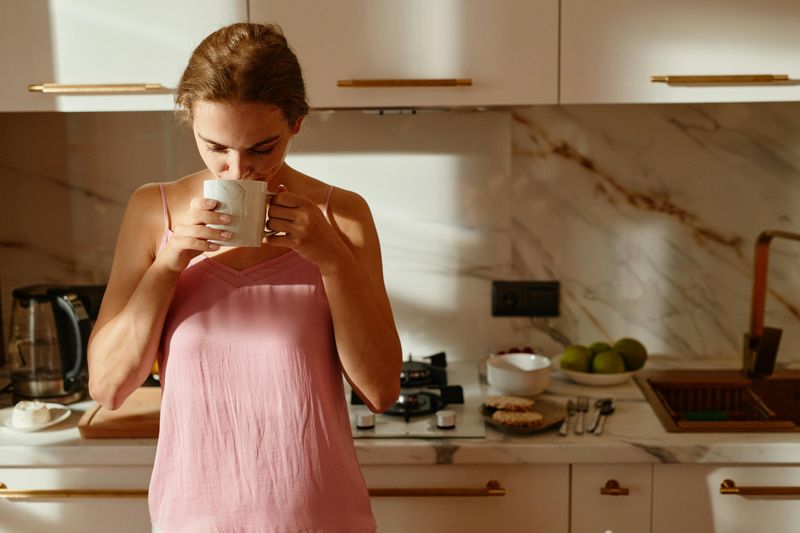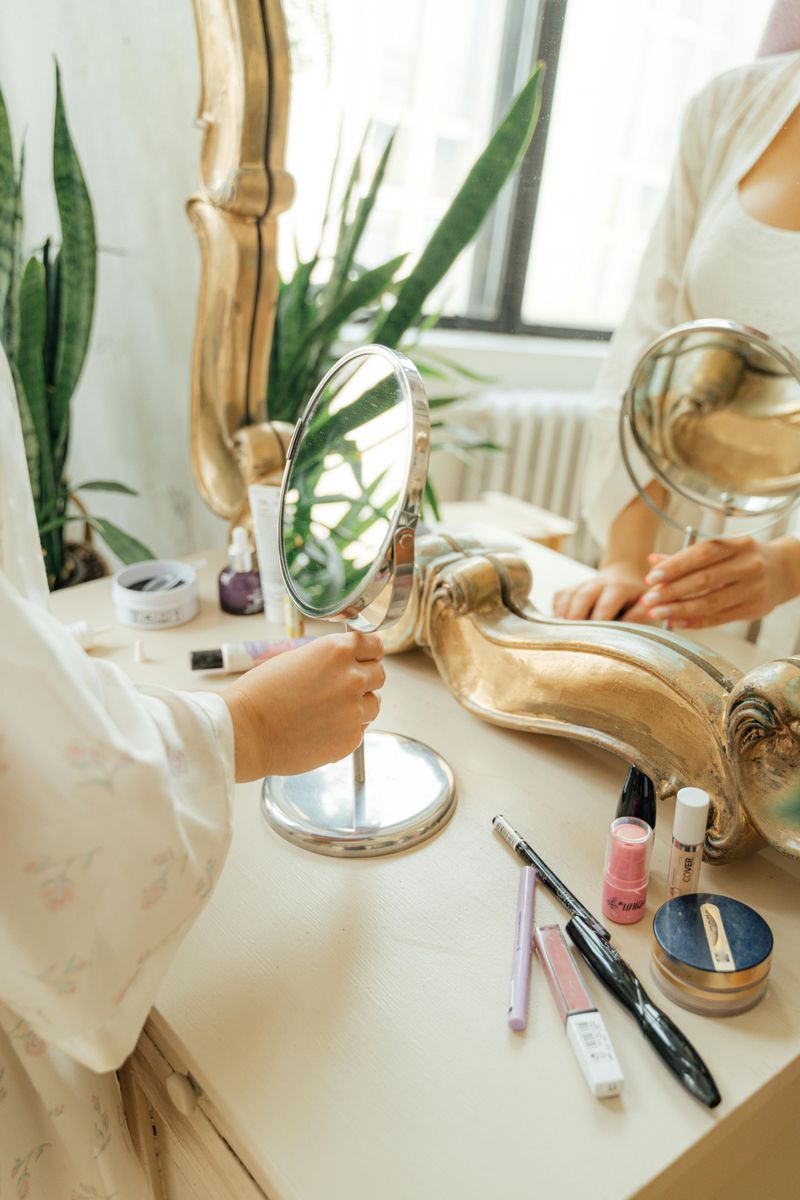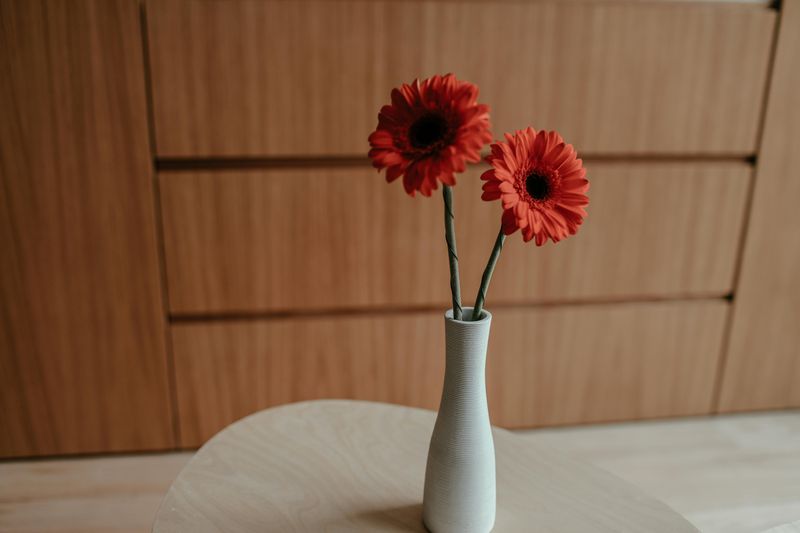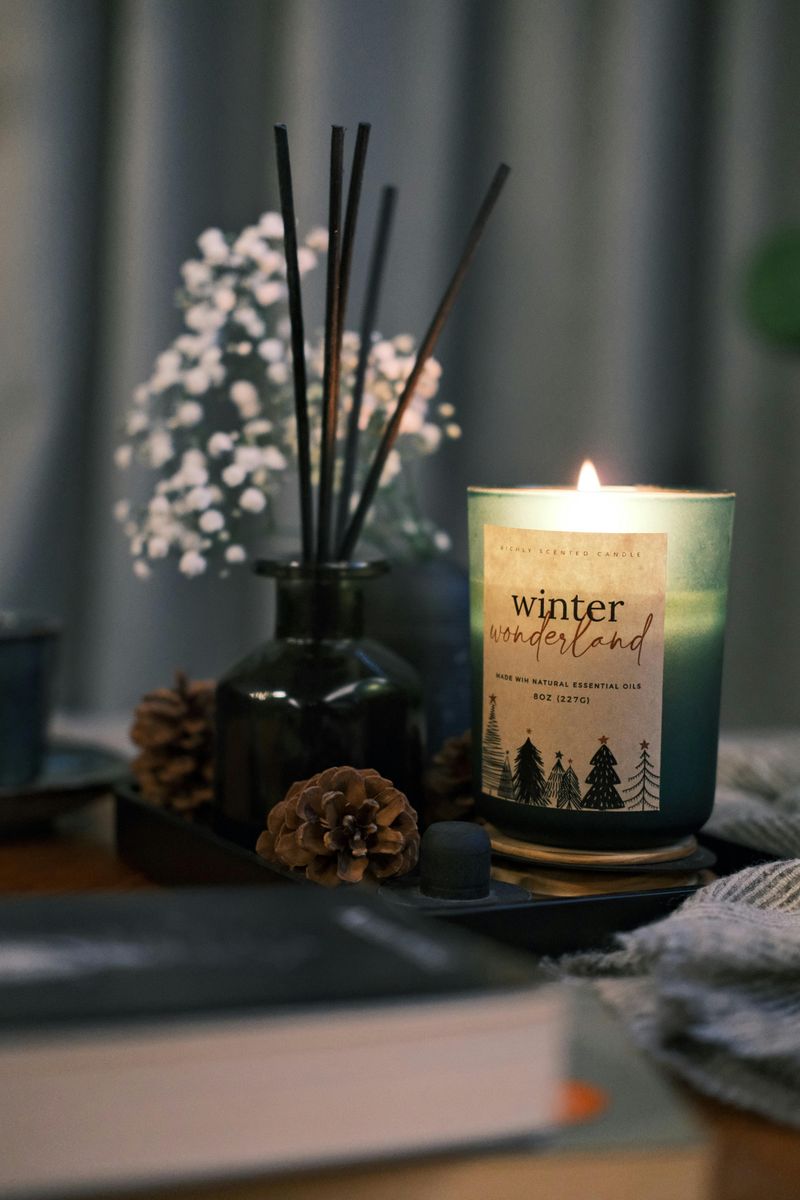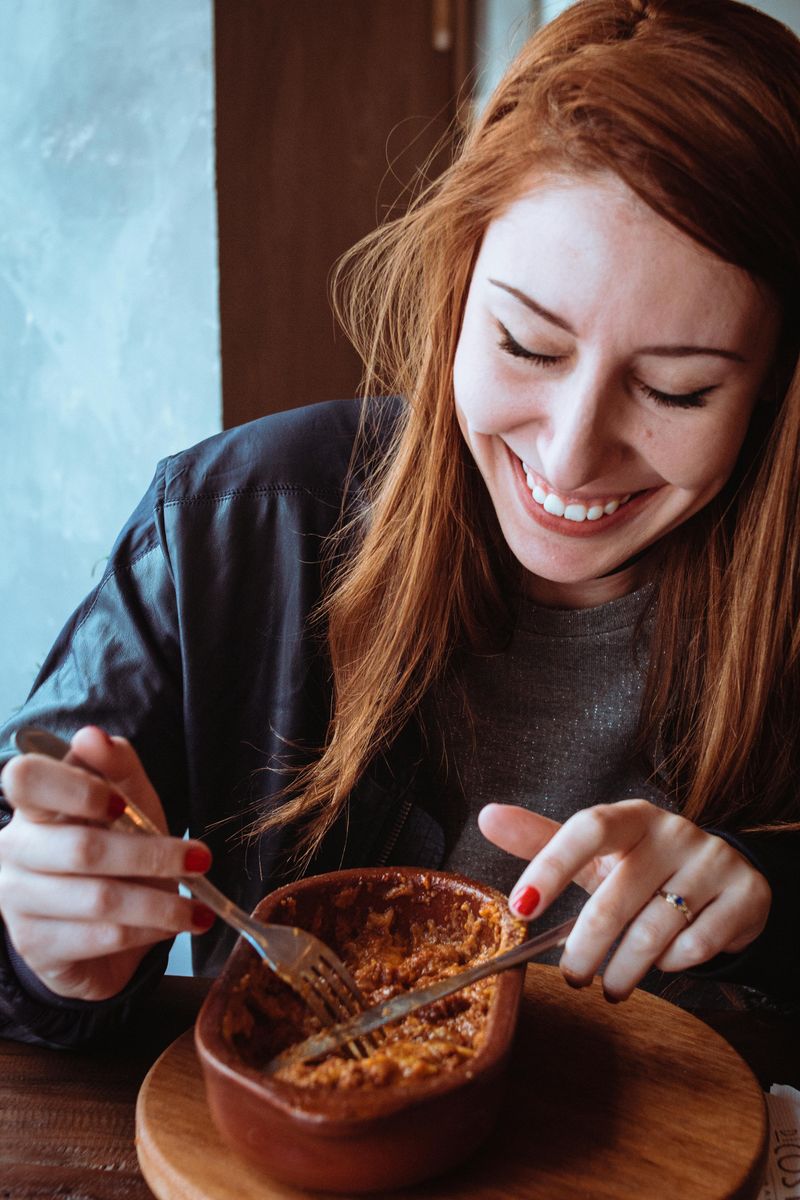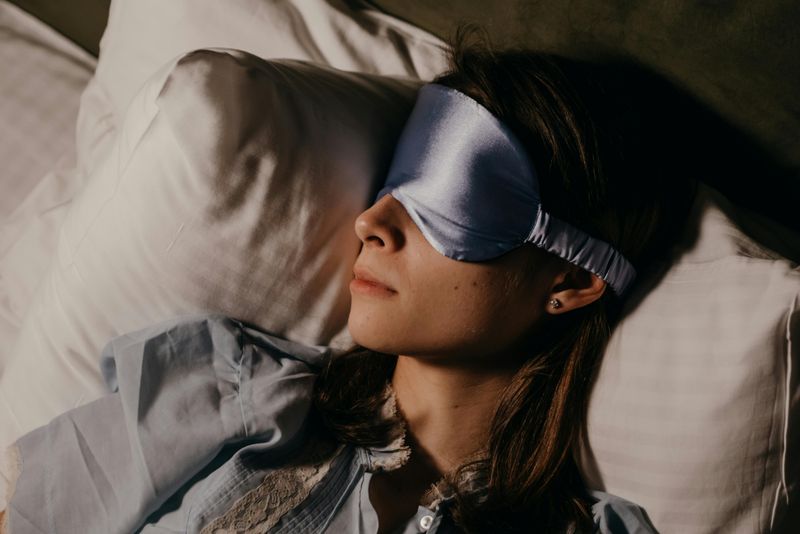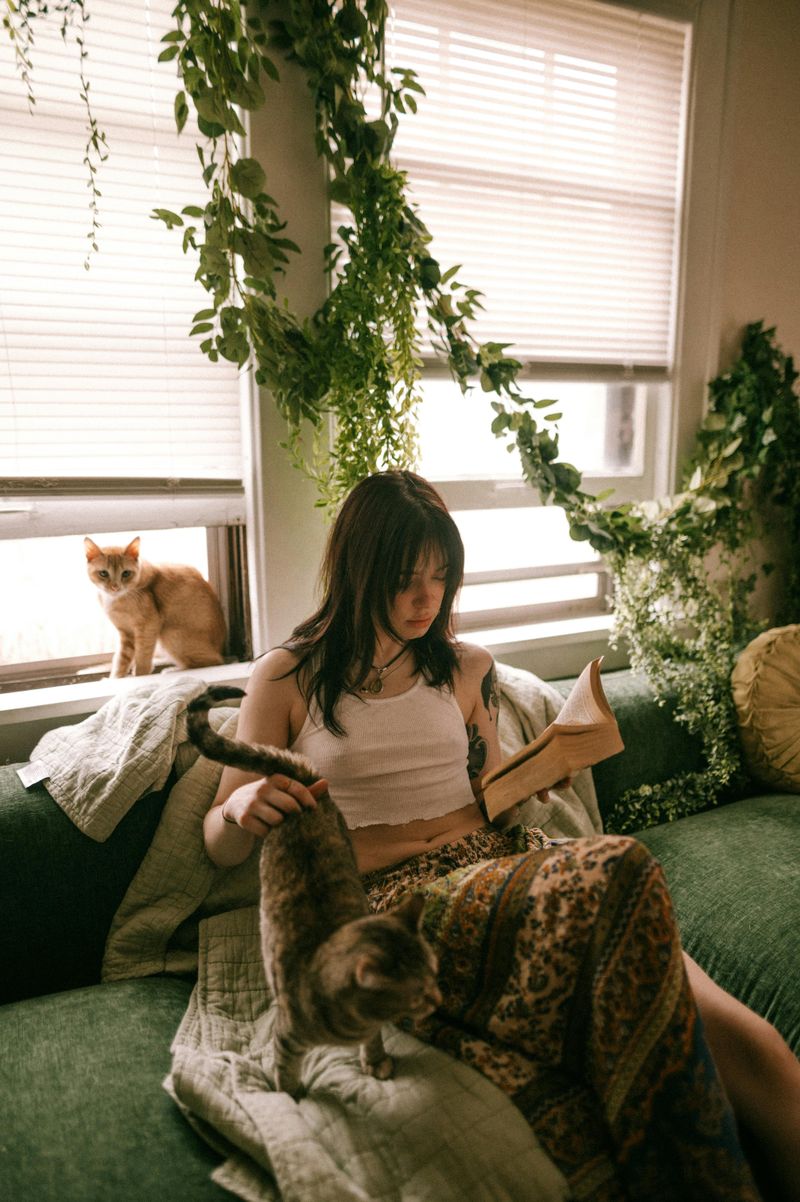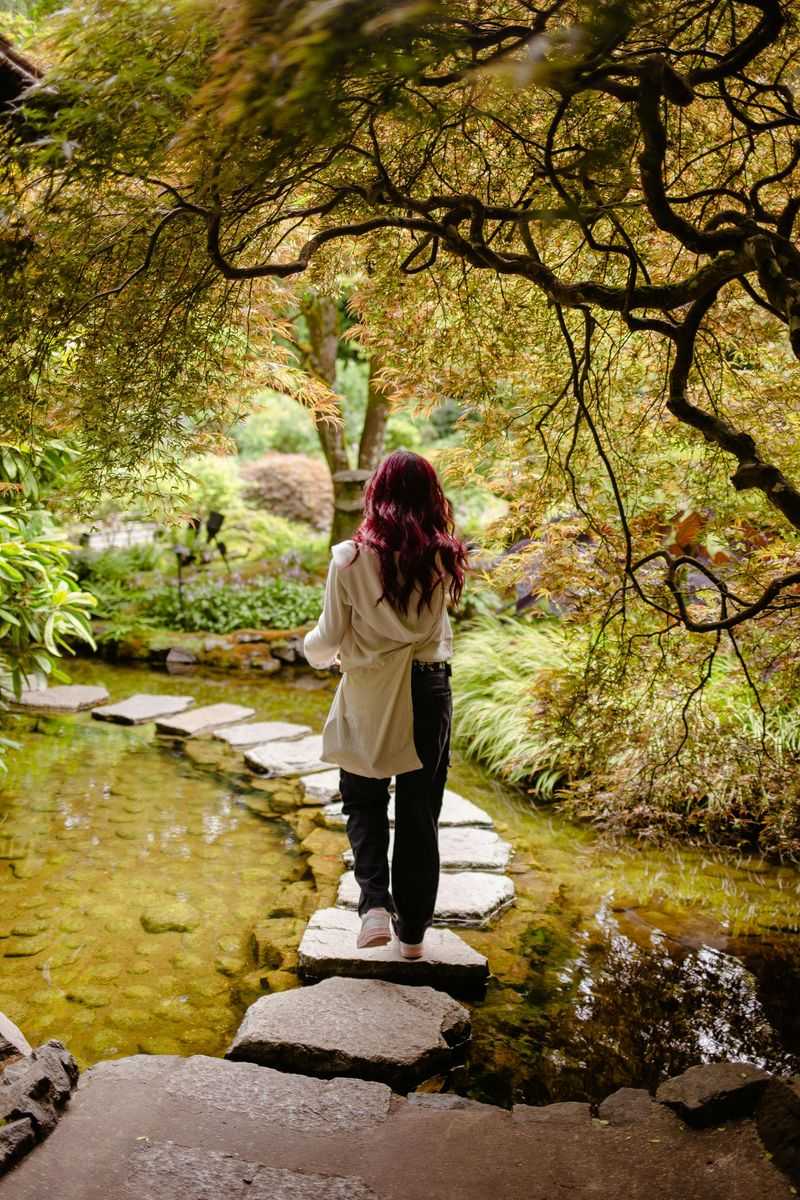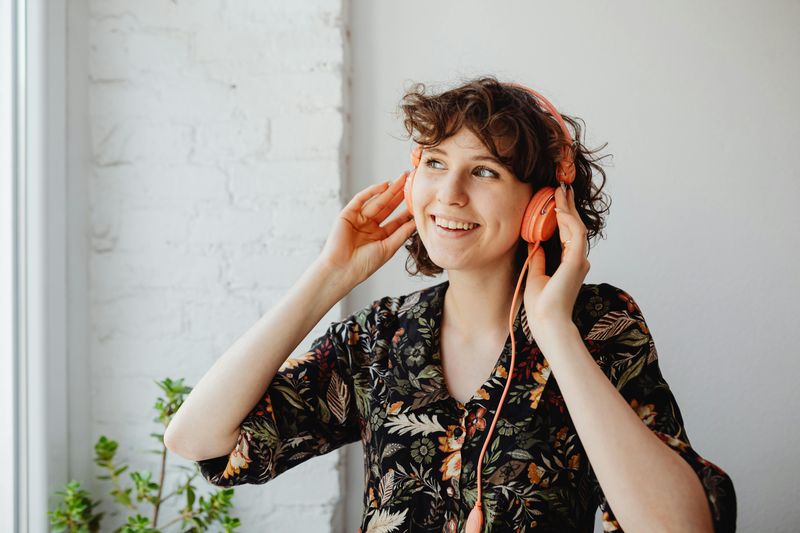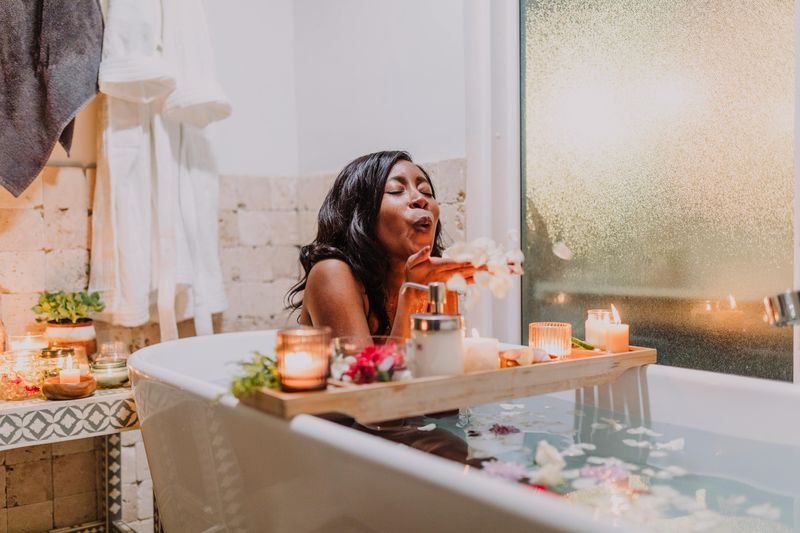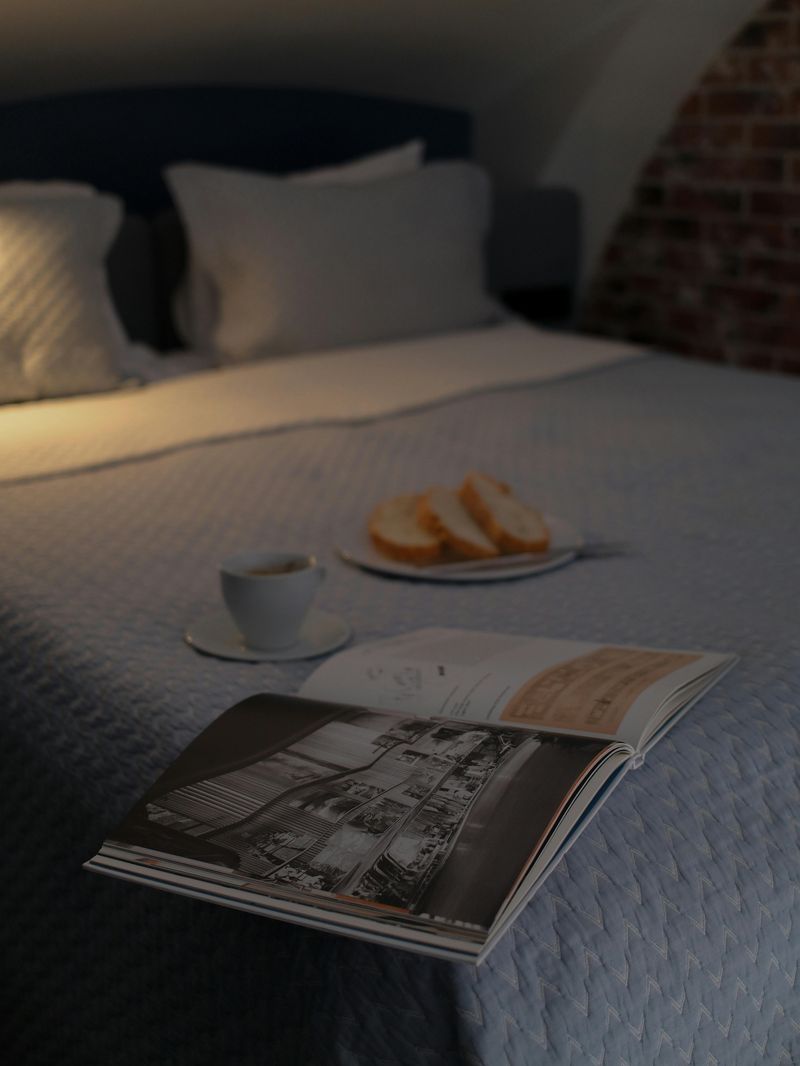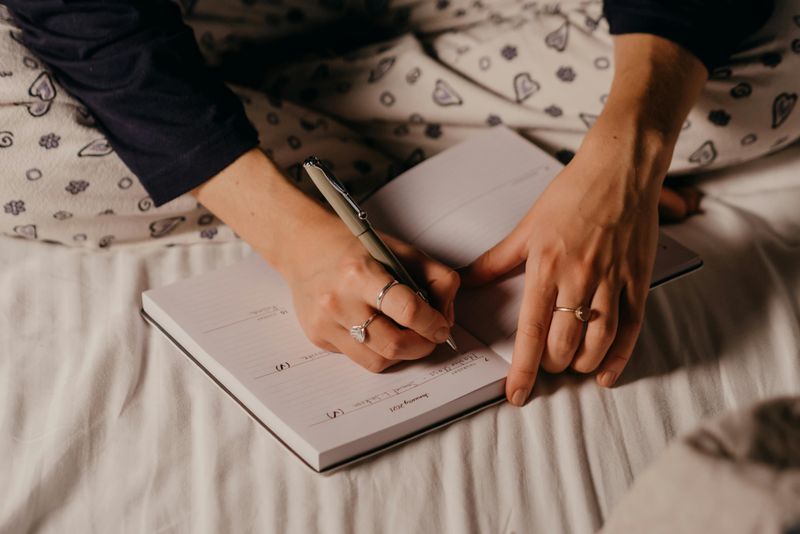Life’s simple pleasures often get lost in our rush from one task to the next. But what if we could transform ordinary moments into something special without spending lots of money? Adding small, intentional rituals to your day can make regular life feel rich and meaningful. These easy practices help you slow down and notice the beauty that’s already around you.
1. Morning Beverage Ritual
Forget gulping down coffee while rushing out the door. Create a special morning moment by brewing your favorite beverage with care. Use a beautiful mug that feels good in your hands.
Take time to notice the aroma as it steeps or brews. Maybe add a touch of cinnamon or a twist of orange peel for an extra sensory boost. Find a cozy spot by a window or in a comfortable chair.
Those first ten minutes of savoring rather than rushing set a luxurious tone for your entire day. The ritual itself becomes something to look forward to each morning.
2. Unhurried Skincare
Transform your basic face wash into a mini spa treatment by taking just a few extra minutes. Massage products into your skin with gentle upward motions rather than slapping them on. Feel the different textures against your fingertips.
Try keeping your favorite products in a special dish or tray rather than scattered around the bathroom. The simple act of arranging them makes the routine feel intentional. Consider adding one product with a scent you absolutely love.
When you slow down this everyday necessity, it becomes a moment of self-care rather than just another chore to complete.
3. Fresh Flowers or Greenery
A small bunch of flowers or even a single stem in a simple vase brings immediate life to any space. You don’t need expensive arrangements – wildflowers from a walk or inexpensive blooms from the grocery store work perfectly.
Place them where you’ll see them often: your desk, kitchen counter, or bedside table. Notice how they change day by day, opening up or shifting color. If fresh flowers aren’t practical, a small potted plant or some foraged branches can create the same effect.
This living element connects you to nature’s rhythms and adds a touch of beauty that elevates ordinary surroundings.
4. Scent as Atmosphere
Our sense of smell bypasses logical thinking and goes straight to our emotions. Creating signature scents for different rooms or times of day can transform ordinary spaces into extraordinary ones. A citrus scent energizes a work area while lavender soothes a bedroom.
Light a candle while you read or use a room spray before guests arrive. Essential oils in a diffuser can set the mood for different activities. Even opening windows for fresh air creates a sensory reset.
Unlike visual clutter that demands attention, scent works subtly in the background, creating an atmosphere of luxury without adding a single object to your space.
5. Slow Meals
Eating while scrolling or standing at the counter robs us of one of life’s fundamental pleasures. Even for simple meals, take a moment to plate your food thoughtfully. Use real dishes instead of eating from containers.
Sit down properly, even when alone. Notice the colors, textures, and flavors with your full attention. A simple sandwich becomes memorable when you actually experience it. Try eating without distractions for just one meal a day.
This mindful approach transforms nourishment from a rushed necessity into a moment of pleasure. The food itself doesn’t need to be fancy – the luxury comes from your attention.
6. Silk or Linen Touches
Luxury lives in what touches your skin. Upgrade just one everyday textile to natural fibers and notice how different it feels. A linen napkin instead of paper, a silk pillowcase, or cotton sheets with a higher thread count make ordinary moments feel special.
These natural materials interact with your body differently – they breathe, soften with use, and engage your sense of touch. They also tend to last longer than synthetic alternatives.
You don’t need to replace everything at once. Start with one item you use daily, like a hand towel or pillowcase, and let that small upgrade remind you that everyday objects can be sources of subtle pleasure.
7. Digital Detox Pockets
Creating small technology-free zones in your day feels increasingly luxurious in our constantly connected world. Designate certain activities or spaces as screen-free: meals, the first hour after waking, or your bedroom.
When you’re not constantly available, ordinary moments regain their richness. Conversations deepen, thoughts wander creatively, and you notice details around you that screens would have eclipsed. Your attention becomes yours again.
The luxury here isn’t in adding something but in removing the digital noise that fragments focus. These pockets of undistracted time feel increasingly rare and precious – a true modern luxury.
8. Walking with Awareness
A simple walk becomes extraordinary when you bring full awareness to it. Notice the feeling of your feet touching the ground, the rhythm of your breathing, and the sensations of air on your skin. Look up at architecture or trees you normally rush past.
This doesn’t require special equipment or settings – just your attention to the present moment. Urban streets, suburban neighborhoods, or natural settings all offer rich sensory experiences when you tune in properly.
Walking this way creates a break in autopilot living. For ten minutes, you’re fully present rather than lost in worries or plans – a mental luxury that transforms an ordinary activity into a refreshing ritual.
9. Curated Playlists
Music transforms ordinary activities into meaningful moments. Create specific playlists for different parts of your day: gentle morning music, energizing cooking tunes, or calming evening selections. The soundtrack shapes how you experience routine tasks.
Invest time in finding music that genuinely moves you rather than just playing whatever streaming service suggests. Rediscover albums you once loved or explore new genres that match specific moods or activities.
Good speakers make a difference – even inexpensive ones upgrade the experience compared to phone speakers. This intentional approach to your sonic environment adds emotional texture to everyday moments without costing much.
10. Nighttime Bath or Shower Ritual
Water rituals have signaled transitions across cultures for centuries. Transform your daily cleaning routine into a meaningful boundary between day and evening. Add a special element – bath salts, a new shower gel with an appealing scent, or just really good towels.
The physical sensation of water can wash away the day’s stress along with the dirt. Pay attention to the sensory experience: water temperature, steam in the air, and the feeling of being clean afterward.
Make this time device-free. The contrast between this mindful pause and the usual rush makes ordinary bathing feel like a spa treatment, helping you transition into a more peaceful evening state.
11. Bedtime Turn-Down
Hotels understand the psychological impact of walking into a prepared bed. Create your own turn-down service by taking two minutes before sleep to prepare your sleeping space. Smooth sheets, fluff pillows, and clear away daytime clutter.
Consider keeping a lavender linen spray nearby to mist your pillows. Remove anything work-related from view. Some people enjoy folding back the covers in an inviting way or placing tomorrow’s book on the nightstand.
This small effort signals to your brain that sleep is a priority worth preparing for, not just a necessity. The ritual itself becomes a cue for your body to begin relaxing.
12. Gratitude Journaling
Ending your day by noting three specific things you appreciated creates a powerful shift in perception. Use a special notebook and pen that feel good to hold. The items can be tiny – morning light through curtains, a moment of laughter, or the taste of something delicious.
The magic happens when you get specific about why these things mattered to you. This moves the practice beyond list-making into actual feeling. Over time, you’ll notice yourself spotting potential journal entries throughout your day.
This simple habit trains your brain to notice the good that already exists in ordinary life, making luxury less about what you acquire and more about what you perceive.

